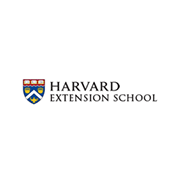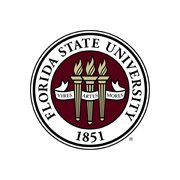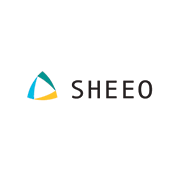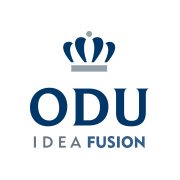When we asked a room of higher education leaders how to enhance students’ career readiness, we assumed the “readiness” part would get people talking. How to guide students in career planning and exploration, and which skills best prepare students for the workplace, surfaced as recurring themes throughout the 2018 Strada-InsideTrack Student Success Symposium. But the “career” part raised just as many questions. Today’s educators are tasked with preparing students for jobs that are still emerging and evolving. In the absence of a predictable career path, participants wondered, will adaptability and flexibility become the most valuable career competencies? The following five insights that emerged during the symposium offer a glimpse of the challenges and opportunities institutions face when embracing a culture of career-forward student support.
No one working on the front lines of higher education has time for one more thing. Advisers shepherd bulging rosters through admissions, registration and graduation, while faculty do the heavy lifting guiding academic development. Between courses and other commitments, many students already struggle to meet deadlines and requirements. So where can career preparation squeeze into the college experience? Instead of presenting it as one more obligation, career preparation can be integrated into existing curriculum and programs. Career services shouldn’t be a lonely outpost at the end of the student journey. Orientation, advising meetings and even the classroom can become lively sites of ongoing exploration where students build bridges between their education and their future employment. Shifting traditional coursework to competency-based or experiential learning can help students make room for career training while still building academic credits, and boost the cohesion of career-planning efforts across the institution.
Sure, people still talk about having “a career.” But grammar aside, the concept of “career” is increasingly taking on a plural meaning. Try to imagine the résumés of the future. The employment experience section could list dozens of different jobs. And in many cases, these jobs will be in entirely different fields and require distinct sets of training. Yet many students still think of career preparation as pursuing the one job that suits them best. Institutions can prepare today’s students for rewarding futures by encouraging them to approach career preparation as an evolution. While students still aim to land their dream job while leaving school, they should expect the nature of that job to change. When it does, institutions will be ready with lifelong learning opportunities that teach necessary skills for a changing workforce. In the meantime, institutions can shift career preparation away from encouraging students to identify a single career path and instead toward helping them cultivate a fuller sense of their aptitudes, interests and goals.
It may sound like an undiscovered title from Dr. Seuss. But teaching students to know what they know could be one of the most important skills they’ll need for career success. The ability to not simply master content, but to recognize and articulate what has been learned, joins the lineup of noncognitive skills that will fuel the career momentum of the future. Other noncognitive skills (also known as “soft skills” or “success skills”) that can enhance workforce readiness in an evolving marketplace are communication, time management and the ability to access and utilize resources. What makes these skills so valuable is their transferability — their utility cuts across career paths and content areas. Yet their transferability can also make them tricky to impart when no specific program or department bears responsibility for teaching them. Regardless of when and how students develop noncognitive skills, reinforcing them at every stage of the student journey will help create resiliency (another success skill) amid shifting circumstances.
Students who take advantage of support resources on campus or in their community have a much better shot at college success. The same goes for institutions — particularly the institutional programs responsible for making students career-ready. Hoping to get prospective students thinking about career possibilities before they apply? Partnerships with high schools or organizations serving high school students can plant seeds that bloom into better enrollment decisions. Wishing you understood more about the particular jobs your students would like to pursue? Lean on the expertise of local employers to give students more career-specific details. Looking for the secret formula to tell students which fields would be the best fit for them? Leverage services and technology specializing in career exploration and assessments. The best career support positions students to lead purposeful lives long after they leave college. Strategic external partnerships can help pave their way.
Remember when we used to joke about drivers who were so embarrassed to ask for directions that they would prefer to get lost? You might not, actually. With everyone accessing GPS in the comfort — and privacy — of their own cars, asking for help without any anxiety is now a normal part of the driving experience. Asking for help should be a normal part of the student experience too. Yet shame and stigma may prevent students from accessing the resources that keep them on track. Closing education and career gaps requires institutions to provide all students with the knowledge and support they need to succeed. Underrepresented students often look to their institutions as the primary source of this knowledge — first-generation students, for example, may not have family members who can help them navigate their education and career exploration. While different students may benefit from different types of support, institutions can address inequities by setting the expectation that all students should access resources throughout the college experience.


Vivamus hendrerit arcu sed erat molestie vehicula. Sed auctor neque eu tellus rhoncus ut eleifend nibh porttitor. Ut in nulla enim. Phasellus molestie magna non est bibendum non venenatis nisl tempor. Suspendisse dictum feugiat nisl ut dapibus. Mauris iaculis porttito.

At vero eos et accusamus et iusto odio dignissimos ducimus qui blanditiis praesentium voluptatum deleniti atque corrupti quos dolores et quas molestias excepturi sint occaecati cupiditate non provident, similique sunt in culpa qui officia deserunt mollitia animi.
Get all 5 insights that emerged during the symposium around career preparation and the college journey.
Senior leaders from across higher education, industry, philanthropy and government gathering to share ideas, analyze data and take meaningful action to advance college and career outcomes for underrepresented students.
The symposium features inspiring speakers, informative discussions and engaging working sessions designed to produce actionable results. A virtual student panel will infuse the program with diverse student voices to connect us with the individuals our work impacts.
We gather to #CloseEDGaps. We know that higher education isn't perfect, but it's transformative. And together, we can make it even better – more accessible, more career-forward, more diverse, more equitable. And most importantly, we can create more graduates.






#CloseEDGaps